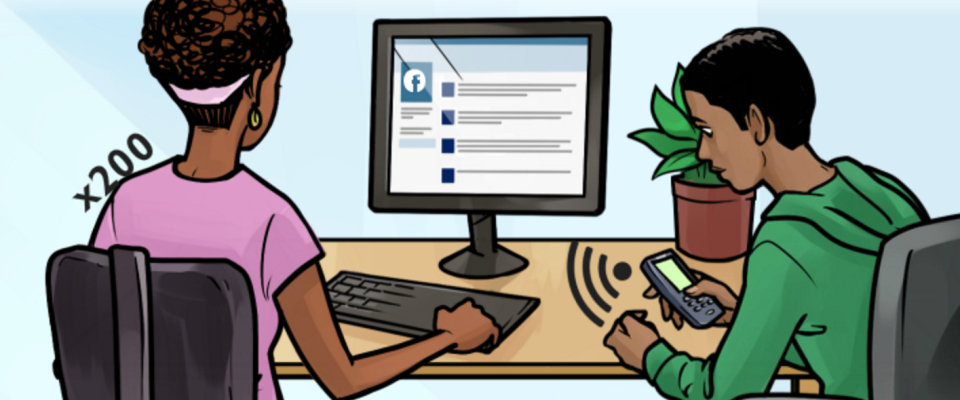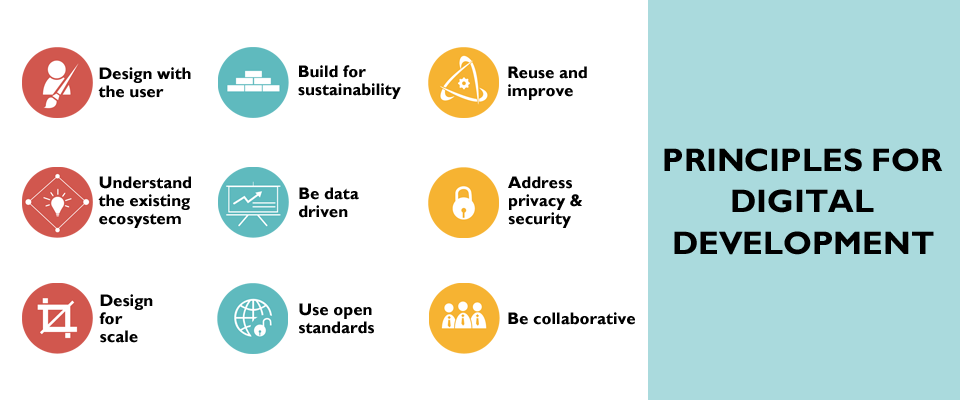- What We Do
- Agriculture and Food Security
- Democracy, Human Rights and Governance
- Economic Growth and Trade
- Education
- Ending Extreme Poverty
- Environment and Global Climate Change
- Gender Equality and Women's Empowerment
- Global Health
- Water and Sanitation
- Working in Crises and Conflict
- U.S. Global Development Lab
-
Learn More
Take Our Mobile Data Collection Online Course
-
Learn More
Read Our Report on Implementing the Principles for Digital Development
The Lab's Development Informatics team seeks to make development more adaptive, efficient, and responsive to citizens and decision makers by creating enabling environments that transform the use of data and technology throughout development.
Relevant and timely data can help decision makers better understand performance and citizen feedback as programs are actually happening, which enables an adaptive, responsive and iterative approach to service delivery. But too often, individual programs create systems that can’t integrate with other data efforts and rely on incomplete or inaccurate data. And development actors waste tremendous sums of money recreating the same technology, instead of investing in shared, common-use platforms.
The Lab is investing in the policies, protocols, standards, and digital infrastructure to facilitate scaled, sustainable, and responsible digital information systems that enable efficient and effective service delivery while maintaining transparency, privacy, and security.
Principles for Digital Development
For over a decade now the international development community has been exploring how the use of modern information and communications technologies (ICTs), tools like the mobile phone, can help extend the reach of development. At the same time, development organizations have grappled with how to use these technologies to make their own work more participatory, sustainable, and effective. We’ve seen great successes, where programs are able to enable access to information and services that previously were beyond reach for some of the most marginalized and vulnerable populations. But we’ve also seen a lot of failure.
In response, USAID co-drafted the Principles for Digital Development, a set of nine best practices for designing and implementing technology-enabled programs, with 13 donor and multilateral organizations and then led a public outreach and endorsement campaign involving over 500 individuals representing more than 100 organizations.
To date, the Principles have been endorsed by over 60 organizations, including UNICEF, the World Bank, WHO, SIDA, the Bill and Melinda Gates Foundation, CRS, Mercy Corps, and FHI 360.
Connecting Health Workers with mHero
mHero is a system that connects health workers and health officials to each other, using the basic mobile phones that most health workers already have--no smartphone, app, or tablet required. The platform facilitates two-way communication using text messages and gets critical information to frontline health workers in real time.
Liberia was the first country to begin using mHero during the height of Ebola epidemic in November 2014. Supported by UNICEF, IntraHealth, and USAID, mHero was first rolled out to better understand which facilities were operating during the outbreak, but it is now used on a daily basis by Liberia’s Ministry of Health.
Building on this success, mHero launched in Sierra Leone in July 2016, where it’s being used by the Ministry of Health and Sanitation to remind district data managers to submit reports and send official messages to health workers.









Comment
Make a general inquiry or suggest an improvement.